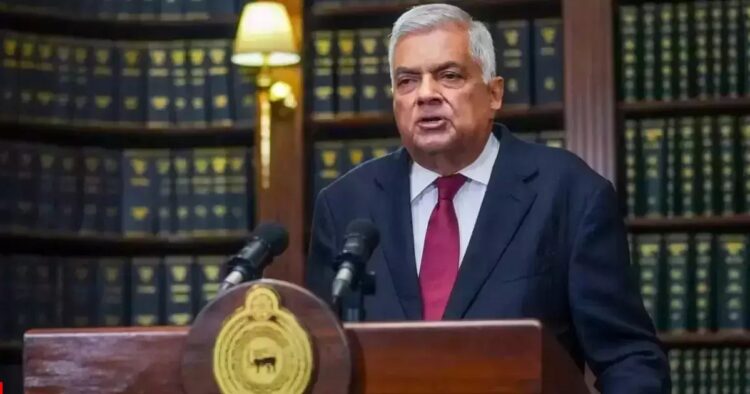In a significant development in Sri Lankan politics, Ranil Wickremesinghe has announced his decision to run for president as an independent candidate in the upcoming presidential election. This announcement comes after the government confirmed that the election will take place on September 21, as reported by Sri Lankan news site Newswave.
On Friday morning, a group of lawyers, including Ronald Perera, who represents the current president, deposited bail money for Wickremesinghe. This action was confirmed by the president’s media team, and Minister Manusha Nanayakkara also made the announcement at a public event. The bail deposit is linked to the legal preparations for Wickremesinghe’s candidacy, following the official gazette announcement of the election date.
Sri Lanka is preparing for its first presidential election since it declared bankruptcy in 2022. The country had to suspend repayments on approximately $83 billion in both domestic and international loans.
This election is seen as crucial for Sri Lanka’s efforts to complete a debt restructuring program and implement financial reforms required under a bailout program from the International Monetary Fund (IMF).
Under Wickremesinghe’s leadership, Sri Lanka has been working to restructure its significant debt and revive its struggling economy. Last March, the IMF approved a four-year bailout program to support Sri Lanka’s recovery.
Recently, Wickremesinghe announced that his government had reached a debt restructuring agreement with several countries, including India, France, Japan, and China. This agreement is a key milestone in Sri Lanka’s path to economic recovery after defaulting on its debt in 2022.
The economic situation in Sri Lanka has improved somewhat under Wickremesinghe’s administration. The severe shortages of essential items like food, fuel, and medicine have mostly been resolved. However, there is growing public dissatisfaction due to the government’s efforts to increase revenue. This has involved raising electricity bills and introducing new income taxes on professionals and businesses to meet IMF conditions.
ALSO READ: “Sri Lanka Secures Private Debt Restructuring Agreement with Bondholders”
Sri Lanka’s economic crisis was largely due to poor economic management, worsened by the COVID-19 pandemic and the 2019 terrorist attacks, which significantly impacted the tourism industry. The pandemic also disrupted remittances from Sri Lankans working abroad.
Additionally, the previous government’s decision to cut taxes in 2019 depleted the country’s treasury just as the pandemic hit, leading to a dramatic drop in foreign exchange reserves. This left Sri Lanka struggling to pay for imports and defend its currency, the rupee.

















Comments